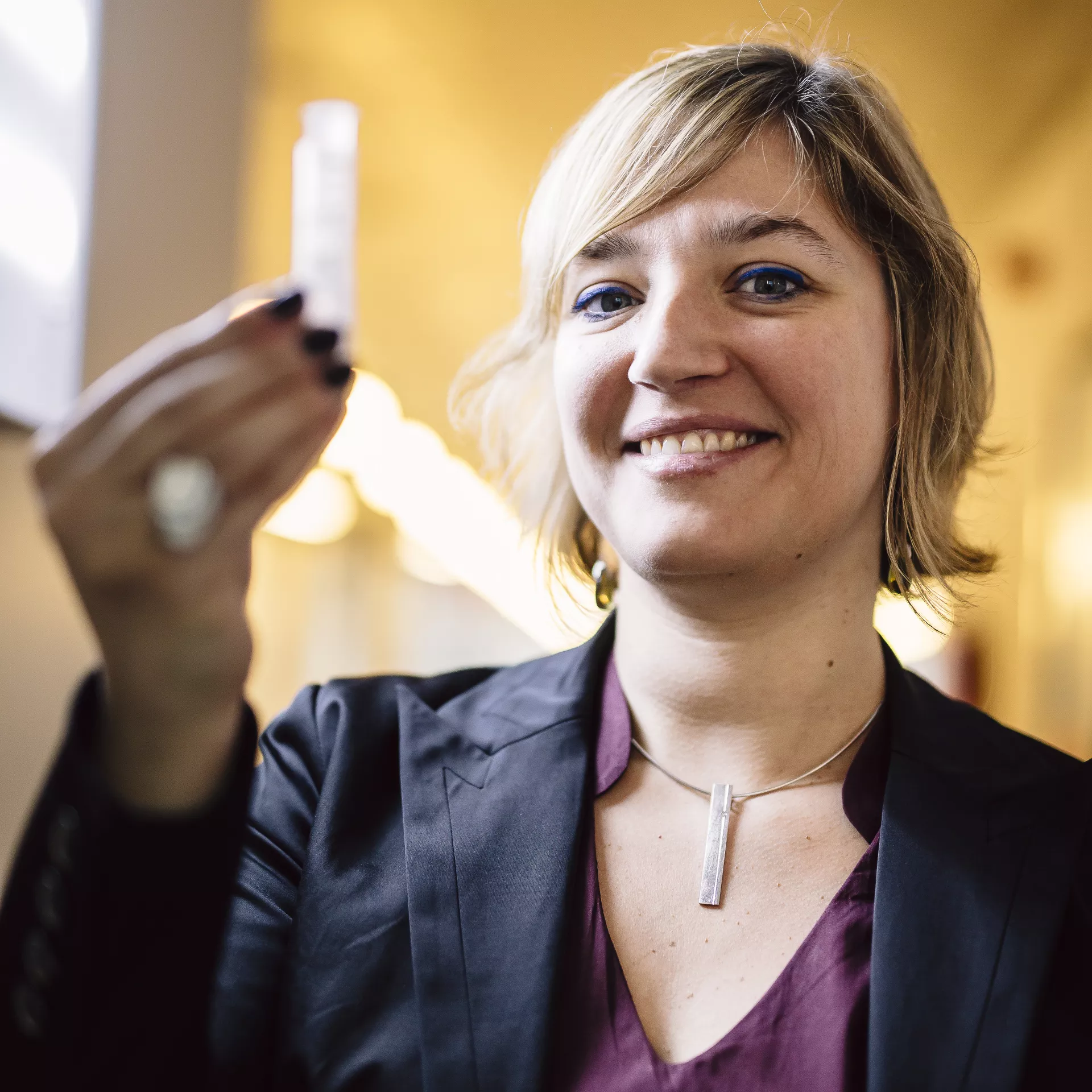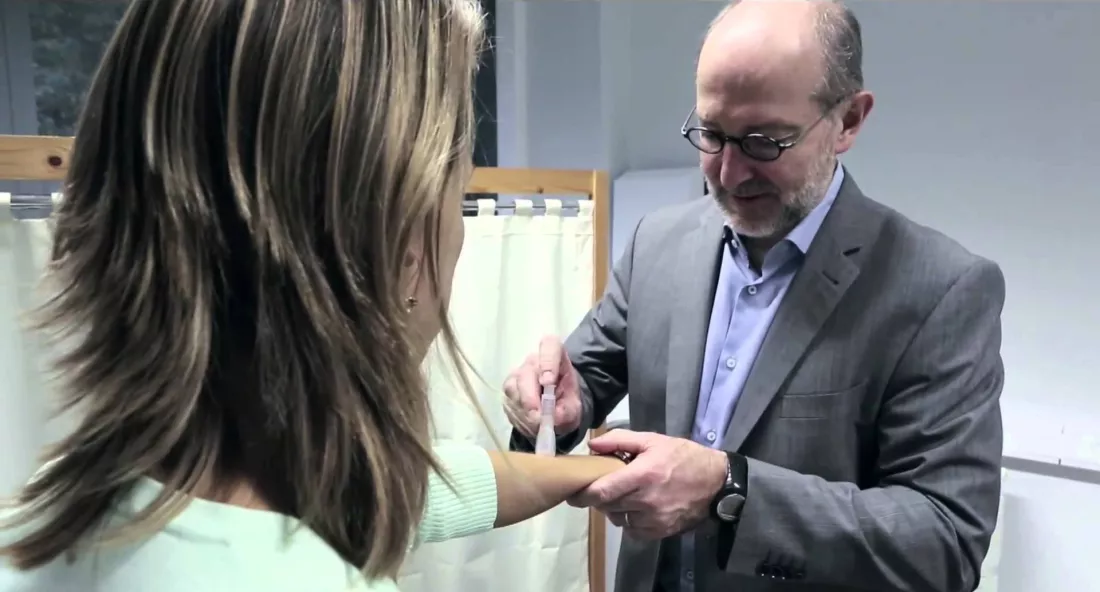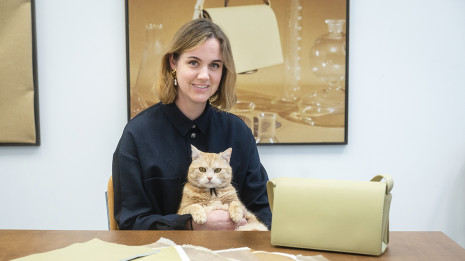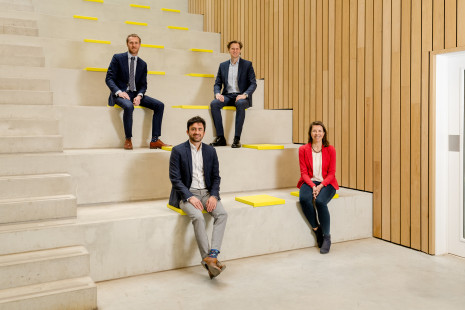Idevax
Vanessa Vankerckhoven - CEO Idevax

Idevax: innovative medical devices
“The medical and design worlds may appear far apart, but they are ideally suited to benefit each other. The Idevax team puts this into practice through a strong mix of medical, technical and creative expertise,” explains CEO Vanessa Vankerckhoven. It all started when they bridged the gap between the Institute for Vaccines and Infectious Diseases and UAntwerp’s Product Development Department to create innovative spin-off technologies.

Innovative injection system
The benefits of synergies between the two fields became clearly apparent in 2009, when the H1N1 virus – better known as swine flu or Mexican flu – broke out and available vaccine doses were insufficient. “We were brainstorming about an injection device capable of administering smaller doses of vaccine that would allow us to do more with less. This kickstarted a collaboration with Koen Beyers, founder of Antwerp design and engineering agency Voxdale (Editor’s note: also Novosanis and Idevax co-founder). Although the university’s capabilities were fantastic, we also needed an expert in industrial prototypes to actually make the concept a reality. Idevax now includes this innovative and patented UAntwerp spin-off technology in its portfolio. VAX-ID™ is suitable for injection into the dermal layer of the skin and, due to the accuracy of the injection, optimises the use of available vaccines, among other advantages.”
“User-friendly design makes intradermal injection less painful and easier to administer, reducing training time for doctors and nurses.”
Lifesaving device
While H1N1 was fatal to 17 female patients in Belgium, 226 women die every year due to the human papillomavirus (HPV) that causes cervical cancer. For all of Europe, HPV claims as many as 13,000 victims annually. “And that’s despite the fact that it’s easy to detect in time using a smear test,” stresses Vanessa. “Unfortunately, due to lack of time or inconvenience, many women never get tested. Research has shown that HPV is also detectable in first void urine. Groundbreaking findings ... except for the lack of suitable medical devices to enable clinical testing. This was the impetus for us to design our own Colli-Pee device. It is now patented, bears CE marking and is ready to save many more women.” (Editor’s note: Novosanis was acquired by Orasure Technologies Inc in 2019).
User-friendliness reaches greater audience
“Colli-Pee makes it possible for women to take urine samples at home, allowing HPV infections to be detected. It is currently being used to detect sexually transmitted diseases in the Netherlands. The device’s design means it is easily sent by post, easy to use and can be returned just as easily. Thanks to Colli-Pee, we can reach a much larger group. The same holds for VAX-ID™: a user-friendly design makes for less painful intradermal injections and it’s very easy for doctors and nurses to use. Again, this means we can reach more people more easily.
Room for medical creativity
“There are so many design opportunities in the medical field, but I feel that many companies fail to seize them. Of course, it does take effort: regulations are strict, and rightly so. While designs are subject to strict constraints, there is still room for improvements and adjustments. And yes, it’s expensive. The only way to reduce costs is to produce large volumes. That means we need to be inventive in designing our prototypes. Our greatest strengths are our ingenuity and flexibility. These make us attractive to major pharma and life sciences companies, who approach us to see what our innovative skills can do for their products. That’s great for us too, since we can then piggyback on their market share.”
Novosanis and Idevax: a fascinating history of medical device innovation and entrepreneurship
In March 2013, co-founders Vanessa Vankerckhoven and Koen Beyers founded Novosanis as a spin-off from the University of Antwerp in order to commercialise the Colli-Pee and VAX-ID medical technologies. The company was subsequently acquired by Orasure technologies Inc, mainly for its Colli-Pee device platform. In early 2021, VAX-ID was spun out into a new Antwerp-based company, Idevax, also co-founded by Vanessa and Koen.


